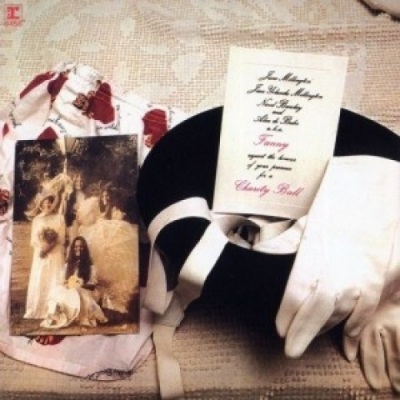
Charity Ball
Review by Mark Deming Fanny were still finding their feet when they recorded their first album in 1970 -- it was a fine set of songs but occasionally betrayed the fact that the bandmembers were just getting accustomed to one another when they started recording. Fanny's second effort, 1971's Charity Ball, was in comparison a stronger, more confident, and more enjoyable disc; the push and pull between June Millington's tough guitar figures and Nickey Barclay's rollicking keyboards yield more exciting results here, while Alice de Buhr's sharp, inventive drumming and Jean Millington's subtle, melodic basslines keep the bottom end lively and supportive at all times. The band also delivered a better set of songs this time out; the rowdy good-time boogie of the title cut was a deserved hit single (though it sadly peaked just as it first nicked the Top 40), "Soul Child" delivers some cool but sassy funk, "What Kind of Love" and "A Person Like You" find them throwing some serious and quite funny shade on folks who've done them dirt, "A Little While Later" confirmed they could still sound forceful in ballad mode, and "Place in the Country" is a powerful rant against the madness of war and inner-city strife with some of June's most fiery soloing. Richard Perry's production is a sometimes a bit more polished than this music needed, and it's a shame he didn't give this band a punchier guitar sound, but he makes the most of the melodies here (and Fanny most certainly had 'em) as well as the group's solid harmonies. As the first all-female rock band to cut an album for a major label, Fanny had the unenviable task of being trailblazers who were expected to "prove" they were capable of playing rock & roll (something women had been doing for years at this point). With Charity Ball, Fanny reminded anyone with ears that they were a strong, talented, and exciting rock & roll band as purely enjoyable as any group on the scene in the early '70s, regardless of gender. Fun trivia fact: the portrait of the band on the front cover was photographed by none other than Candice Bergen.
